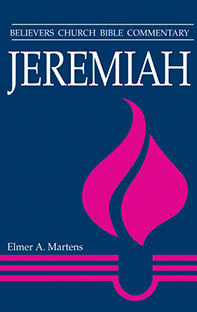Justice (in Jeremiah)
![]() Home A B C D E F G H I J K L M N O P Q R S T U V W X Y Z Abbreviations Glossary
Home A B C D E F G H I J K L M N O P Q R S T U V W X Y Z Abbreviations Glossary
Honorable action which preserves well-being (šalom) all around, especially an action which sets right a disturbed situation. While it is linked with a ruler’s responsibilities and refers therefore to God and to kings, its practice is required of God’s people generally. God is one who proceeds in justice (Gen 16:5; Jer 11:20). He loves justice (Ps 37:28). Justice, along with righteousness, is the foundation of God’s throne (Ps 89:14). Kings are repeatedly called to rule justly, i.e., they are to care for those whose rights are overlooked and who are easily exploited (Jer 21:12).
God’s people are to do justice. This means they should show concern for the oppressed. Doing justice means coming to the defense of those who are helpless, the victims of mistreatment: strangers, orphans, widows. Justice includes fair decisions in the courtroom, but for the Hebrews more often it refers to fair dealings in everyday social life, including the proper protocol in all relationships: king/citizen, employer/employee, parent/child, and so on.
Justice in the Old Testament means considerably more than the English word suggests. Note the following contrasts between the perspective found in the Old Testament and that of our contemporary society:
1. Practice or “do” justice vs. “get” justice
2. Used in legal, social, and religious sphere vs. primarily in the legal sphere
3. A central concern everywhere vs. a restricted, even marginal concern
4. Distribution vs. retribution
The noun “justice” (mišpaṭ) occurs 422 times in the Old Testament, 32 of which are in Jeremiah (e.g., 4:2; 5:1; 7:5; 9:24; 33:15). For a comparison/contrast, see Isaiah (e.g., 1:17; 5:7; 9:7; 10:2).
| —Elmer A. Martens |
